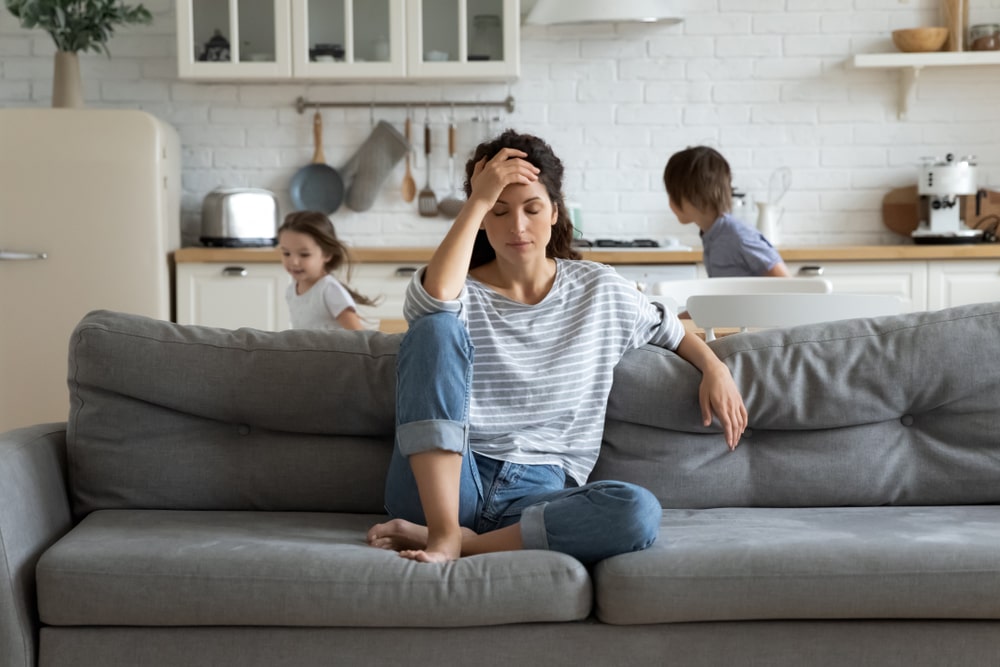Parental burn-out is a subject that is rarely discussed. While parents want the best for their children, how can we explain that some feel overwhelmed by their parental role? Nevertheless, it is a reality that some people have to deal with, and it is important to talk about it and raise awareness of this problem, which is more common than one might think.
Parental burnout is possible
We often hear about professional burn-out and the chronic professional stress that is at its origin. However, it is important to know that burnout can also occur at the parental level. Indeed, the many roles that parents have to fulfill, and the pressure that they put on themselves, can lead to the appearance of real chronic stress. Parenting, recreation, family activities… It can become difficult to juggle all aspects of parenting, in addition to aspects of work and personal life.
The pandemic and containment have in turn exacerbated the pressure felt by some parents. Indeed, many have found themselves teleworking and, at the same time, caring for their children, sometimes full-time.
Finally, we can also make the following link between professional burnout and parental burnout: it is the lack of resources allocated to meet the expectations imposed. In the case of parental burnout, it is often the parents themselves who put themselves under disproportionate pressure in relation to their parental role. They want to be there for their children, to allow them to do all the sports and leisure activities necessary for their fulfillment, development and happiness, etc. Nevertheless, they often put this excessive pressure on themselves, without realizing that they do not have the necessary resources (time, money, etc.) to do so.
Signs of parental burnout
As a parent, you need to know how to recognize the signs associated with parental burnout. Even if the subject remains taboo, it is important to recognize the existence of this syndrome in order to seek help when it presents itself.
- Exhaustion: Exhaustion is often the first thing that happens. This exhaustion can occur emotionally (negative emotions) or cognitively (mental fatigue), but also physically (lack of energy). The parent no longer has the energy to fulfill the many facets of parenting.
- Emotional detachment from the children: the parent may feel emotionally detached from his or her role and from the children. The parent can barely find the energy to meet the children’s basic needs, and no longer seeks to spend positive, quality time with the children, such as during free time. Emotional distancing can also occur within the couple (both parents).
- Loss of fulfillment in the parenting role: Eventually, exhaustion and emotional distancing take the parent away from his or her ideal of the “model parent. The parent realizes that he or she is not “giving as much” to the children as he or she would like. Parental fulfillment gradually diminishes and the parent feels like a bad parent.
In short, parental burnout can cause real distress to those who suffer from it. The parent’s distress can be intense, since he or she feels that there is no way out of his or her situation. In addition, the parent may be afflicted with guilt, since he or she has difficulty explaining why he or she no longer feels fulfilled and does not enjoy being with his or her children. The parent may experience real disillusionment with their family ideal; they compare themselves with other families and the perfect image they project on social media, they don’t understand why their family doesn’t radiate happiness.
Parental burn-out: who does it affect?
Many parents experience stress associated with their parental role. Nevertheless, it is believed that it is those who are perfectionists, at the base of their lives, who are more at risk of finding themselves in a burn-out situation. Up to 5% of parents may nevertheless suffer from it, which is a significant proportion of people. Moreover, parents who stay at home are more likely to suffer from it. We also note that parental burnout often affects parents of the sandwich generation. In addition to providing for their children, these parents must take care of the needs of their aging parents, who are sometimes losing their autonomy.
How can parental burnout be prevented?
We have prepared this article because the first step to avoid parental burnout is to talk about it. To prevent parental burnout or to prevent its effects from becoming excessive, here is some advice offered by the psychologists at Clinique GO™.
- Recognizing the signs of burnout: the signs mentioned in this article should not be overlooked. In fact, you must know how to recognize them and avoid waiting for the effects of burnout to intensify before taking action.
- Talking about it with those close to you: it is important to communicate the difficulties you are encountering to those around you. Verbalizing emotions is the first step towards taking charge of them. Moreover, it can help to put things into perspective and to realize that we are not alone in feeling overwhelmed by the parental role.
- Knowing how to delegate: as a parent, you are not alone in being able to ensure the well-being of your children. When you feel in difficulty, you should not hesitate to seek help from grandparents, friends, etc.
- Adjust your expectations: you have to know how to identify the expectations you have of your parental role and the resources you have to meet them. Then you can better determine whether the expectations you have are realistic.
- Seek professional help: Parental burnout is a problem that can be managed psychologically. It can help to step back from the elements that contribute to parental stress (personal, relational, couple-related, etc.) and identify them. In addition, when distress is felt, the support of a psychologist is most relevant.
If need be, do not hesitate to ask for help from a psychologist who is a member of the Clinique GO™ team. In addition to in-home services, we also offer services via teleconsultation, which are most relevant in times of pandemic.
 Approuvé par Francis Desjardins
Approuvé par Francis Desjardins



